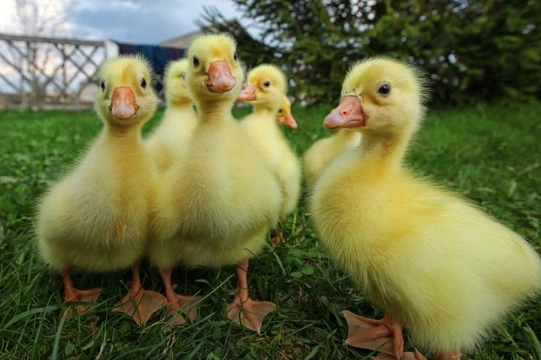
How to Treat Wry Neck in Ducklings and Chicks
Wry neck is a condition that is often referred to as “crook neck” and it typically affects ducklings and baby chicks, although adult birds can suffer from it if they are being fed an incorrect diet. Birds with the disorder cannot hold their heads up on their own and as it progressively gets worse, affected birds start to fall over or lie on their backs unable to walk freely on their own.
Often fatal simply because chicks, ducklings or affected adult birds simply cannot eat or drink any water which means they get dehydrated and if not helped to feed, birds suffering from the condition will starve to death.
What Causes Wry Neck?
The condition can be caused by various things which includes the following:
- A genetic disorder
- An injury to the head
- A vitamin deficiency
- Ingesting toxins
- Botulism
However, it could also be a symptom of a nasty disease called Marek's or even aspergillosis which is a fungal infection.
Breeds Prone to the Condition
Certain breeds are more prone to developing the condition through injuries they get to their heads. This includes both Polish and Silkies because their skulls don't offer the same amount of protection as found in other breeds and due to their head plumage, they are more likely to be pecked on their heads by other birds that live in the same environment.
It's important to separate any aggressive birds from a flock if you have either Silkies or Polish chickens running with other breeds. The other reason for bullying and pecking is when too many birds are kept together in the same environment. Overcrowding can be a real issue so you have to make sure your birds have enough space to run around in.
Vitamin Deficiency
If birds are fed an incorrect diet and in particular one that is vitamin deficient and more especially if it does not contain enough Vitamin E, chickens can develop wry neck. No matter what the cause might be, it is very worth while upping the amount of Vitamin E your birds are receiving in their diet. However, you should not expect immediate results because any treatment will take a few weeks to take effect which is why it's important to start supplementing their feed as soon as possible.
To build up your flock's Vitamin B1 intake, it's good idea to add a little Brewer's Yeast, sunflower seeds, wheat germ or bran to their diets as all of these are very good, natural sources of the vitamin.
Treatments for Wry Neck
No matter what has caused the condition, it's important to separate any bird with wry neck from the rest of the flock to avoid them being picked on or trampled. You would need to feed them and to make sure they are drinking enough water. One way of doing this is to soak some bread in fresh, clean water before feeding it to the bird – like this you avoid them aspirating the liquid into their lungs which could prove fatal.
Adding molasses to their diet is also beneficial because it is full of vitamins and valuable nutrients. It's also better to add a natural source of Vitamin E to their diet rather than just the vitamin alone. The reason being that to absorb Vitamin E, it's necessary to add selenium too. Natural sources provide both which makes life a lot easier. Very good natural sources of Vitamin E can be found in the following herbs:
- Oregano
- Basil
- Parsley
- Sage
- Thyme
- Marjoram
There are quite a few spices that are great sources of both Vitamin E and selenium which include:
- Cayenne pepper
- Cloves
- Cumin
- Turmeric
- Caraway
- Cinnamon
Other very good and rich sources of Vitamin E can be found in:
- Alfalfa
- Dandelion
- Nettle
- Raspberry leaf
- Rose hips
- Spinach
- Sunflower seeds
- Pumpkin seeds
- Olive oil
Prevention is Easier Than Cure
As with most things that are health related in any animal, prevention is always that much easier than cure and this applies to wry neck in poultry too. Diet is very important, so you need to make sure your flock is getting enough Vitamin E and B1 in their food. You may like to consider supplementing their diet with some great natural sources of these vitamins which not only ensures a healthier flock, but it also adds a lot of variety to their feed.
Conclusion
Making sure chickens are being fed a well balanced diet that contains all the right amounts of vitamins is very important because it reduces the chances of them suffering from wry neck. However, if you do notice any of your ducklings, chicks or adult birds are developing the condition, the first thing you need to do is up the level of Vitamin E and B1 you are giving them in their diet. You also need to separate any bird with the condition from the rest of the flock to make sure they don't get bullied and so that you can hand feed them, making sure they are drinking enough water too.



